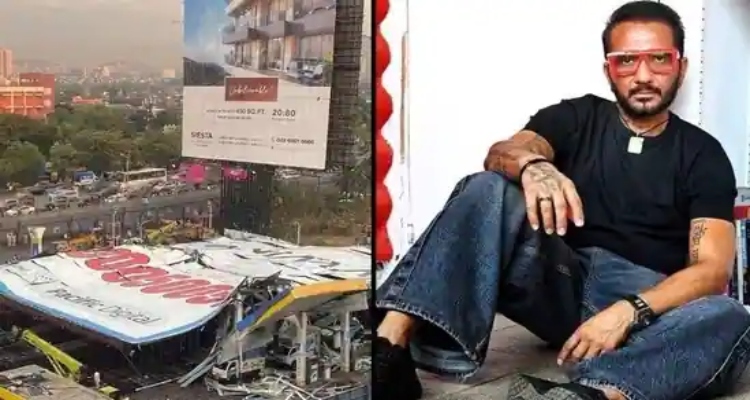
The Bombay High Court on Friday (August 9) dismissed the petition filed by Bhavesh Bhinde, the director of an advertising firm arrested in the Ghatkopar hoarding collapse case. Bhinde had claimed that his arrest was illegal and sought immediate release.
A bench of Justices Bharati Dangre and Manjusha Deshpande found no legal infirmity or procedural errors in the arrest process.
“We find no legal infirmity. The ground of illegal arrest and detention by the petitioner is nothing but a faux. There is no impairment in the procedure. The petition is dismissed,” the bench stated.
Bhinde had requested that the FIR against him be quashed, arguing that the hoarding collapse on May 13, which resulted in 17 deaths, was an “act of God” and sought interim bail pending the hearing of his plea. He is charged with culpable homicide not amounting to murder.
His lawyer, Rizwan Merchant, contended that Bhinde was arrested in Udaipur on May 16 and brought to Mumbai but was only officially shown as arrested on May 17, claiming Bhinde was in illegal detention for a whole day. Merchant cited media reports where the police stated Bhinde was apprehended in Rajasthan and then arrested.
Public Prosecutor Hiten Venegaonkar argued that Bhinde was merely apprehended in Rajasthan and officially arrested on May 17. He also asserted that all arrest procedures, including signatures of independent witnesses on the arrest document, were properly followed, urging the dismissal of the plea.
Bhinde, director of Ego Media Private Limited, which erected the collapsed hoarding in Ghatkopar, sought to have the FIR quashed, claiming the collapse was due to an “act of God,” and thus he should not be held responsible. Presently in judicial custody, Bhinde requested bail pending the hearing of his plea.
Bhinde’s plea cited the India Meteorological Department (IMD) weather bulletin issued on May 12, which failed to predict the severe dust storms with gusty winds that struck Mumbai on the day of the collapse. He argued that these unforeseen weather conditions, rather than faulty construction, caused the hoarding to collapse. Bhinde maintained that the hoarding was legally erected with all required permissions.




